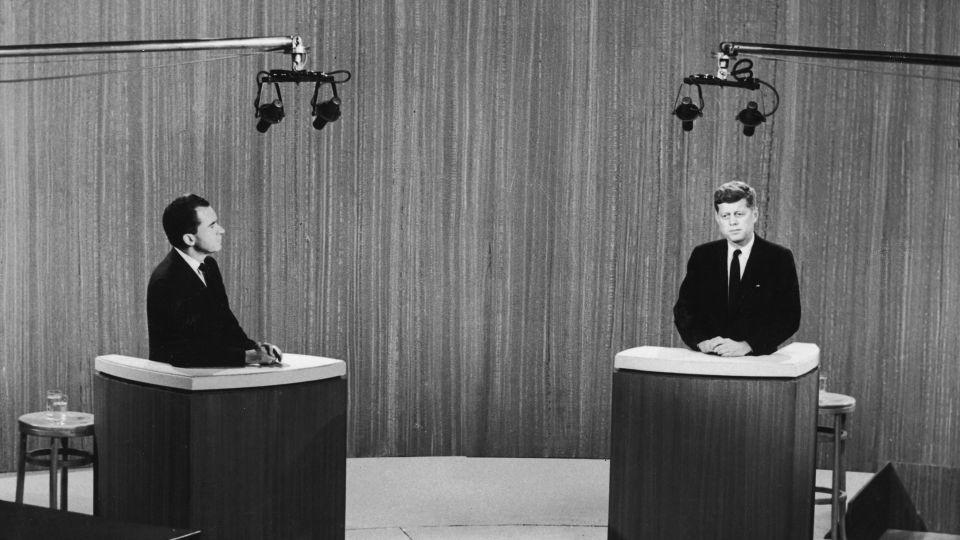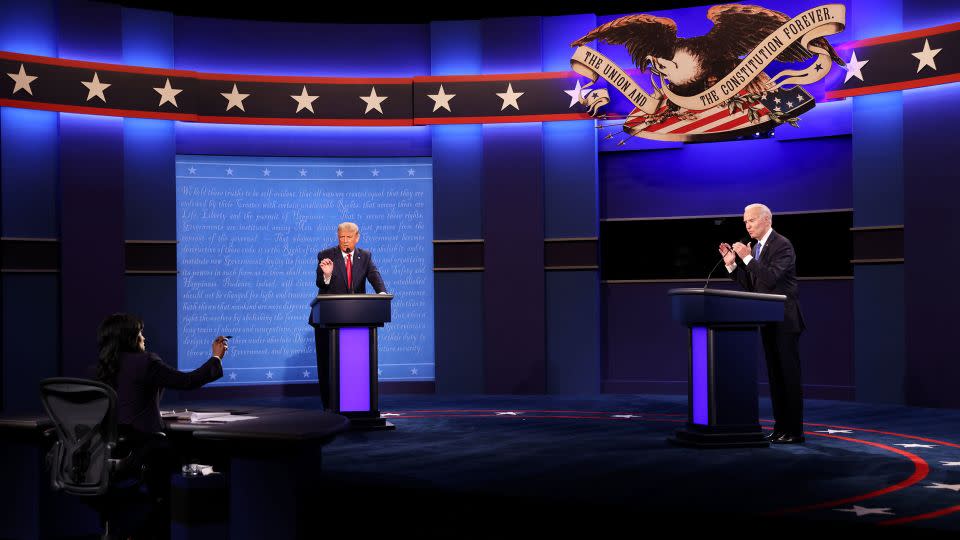What to know about the history of presidential debates
- Oops!Something went wrong.Please try again later.
- Oops!Something went wrong.Please try again later.
- Oops!Something went wrong.Please try again later.
- Oops!Something went wrong.Please try again later.
- Oops!Something went wrong.Please try again later.
The decisions by President Joe Biden and former President Donald Trump on Wednesday to agree to two presidential debates will ensure the continuation of a tradition that dates back to 1960.
But it might look a little different this year: the candidates will first debate on June 27 on CNN, months ahead of the usual fall matchups, in events that will not be organized by the Commission on Presidential Debates, which has overseen debates in every US presidential election cycle since 1988.
It’s just the latest evolution in the history of US presidential debates.
A tradition that dates back to 1960
The first televised presidential debates, between John F. Kennedy and Richard Nixon in 1960, occurred in television studios with no live audience present. Debates did not take place again until the 1976 election, and from then on, took place in front of live audiences that were instructed to not make noise aside from the beginning and ends of the debate.
“In ’76, the president was Gerald Ford. He had come into office because of Nixon’s resignation. So he was in kind of a weak position. He’s the one that actually challenged Jimmy Carter to debates, and that set in place this tradition that has existed ever since then of presidential debates,” Alan Schroeder, professor emeritus of journalism at Northeastern University, previously told CNN’s Zachary B. Wolf.
Schroeder said there are typically two or three presidential debates and one vice presidential debate per cycle.
The importance of the presidential debates is, well, debatable: many credit Kennedy’s narrow victory in 1960 with an appealing performance in the televised debate. Then-President Gerald Ford may have cost himself reelection when he fumbled a question about Soviet military strength in Eastern Europe in 1976. Ronald Reagan, formerly a professional actor, used strong debate performances against Democrats Jimmy Carter and Walter Mondale to help secure two election victories, and an ill-advised decision to look at his watch in the 1992 debate became a memorable footnote in President George H.W. Bush’s defeat that year against Bill Clinton.

On the other hand, in an era of increasing partisan divides, it’s unclear how many minds are left to be made up.
Either way, the debates are likely to present the candidates with some of their best opportunities to reach millions of Americans: around 73 million people watched the first debate between Trump and Biden in 2020, when it was broadcast on 16 channels. Many more probably watched online or encountered snippets. A record 84 million watched the first debate between Trump and Hillary Clinton in 2016.
This year’s schedule
The debates between Biden and Trump will be a historically early and will set the tone for the final months of the 2024 campaign. Wednesday morning, both campaigns announced that they had accepted CNN’s invitation for a debate on June 27 and later revealed that they had agreed to debate on ABC on September 10. The debates will be hosted by news organizations rather than the Commission on Presidential Debates, from which the Republican National Committee withdrew its participation in 2022, citing concerns over what it said were biased moderators and debates that were too late in the election calendar in an age of increasingly early voting.
Despite the RNC’s withdrawal, the commission announced dates for three presidential debates last November: a first debate scheduled for September 16 in Texas, a second on October 1 in Virginia and a third on October 9 in Utah.

In a letter on Wednesday explaining the campaign’s decision to not participate in the commission’s 2024 debates, Biden campaign chair Jen O’Malley Dillon said the campaign proposed an altered schedule because the original dates are “out of step with changes with changes in the structure of our elections and the interests of voters,” pointing to the timeline of early voting, the way the commission has built debates as an “entertainment spectacle” and the commission being “unable or unwilling” to enforce rules in 2020 debates.
The CNN debate will be held without a studio audience, satisfying a condition outlined by the Biden campaign. It’s a sharp departure from previous events that were often interrupted by responses from audience members.
In addition to the two debates that were agreed upon on Wednesday, Trump’s team also called for the candidates to participate in two additional ones in July and August, twice the number requested by Biden. The Biden campaign sidestepped questions about that request on Wednesday.
Biden and Trump will likely be the only candidates on stage
Biden and Trump have been their party’s presumptive nominees for months despite each state’s primaries continuing to take place. It’s likely, though not yet certain, that the stage will feature only the two men and not include Independent Robert F. Kennedy Jr., who, per CNN’s qualifications for participation on Wednesday, is not yet on enough states’ ballots to meet the 270 electoral vote threshold necessary to be elected president and has not maintained a minimal 15% polling average in major polls recently.
Kennedy, who has repeatedly sought to debate Biden and Trump, did not take Wednesday’s announcements well, accusing the two major candidates of “colluding” to keep him off the stage.
In the commission era, the only non-major-party candidate to take part in debates was Ross Perot in 1992. Perot was not included when he ran again in 1996.
CNN’s Zachary B. Wolf, Betsy Klein, Michael Williams and Kristen Holmes contributed to this report.
For more CNN news and newsletters create an account at CNN.com

